
Sunday, December 31, 2006
Tuesday, December 26, 2006
Why I Am a Nazarene: Reason Number 4, We Believe in Free Will, and Can Even Believe in An Open God

Again, I am admitting in these posts that I am an Open theist. To many that is no surprise. I first read The Openness of God about seven years ago and have explored the possibilities and probabilities since. Now, not all Nazarenes are Open theists, but many of us are. Open theism is very agreeable with our Arminian heritage. Because as Nazarenes we believe in free will, we can have a very open view of God.
As we were created in God's image, and God is free to do that which he cannot do without ceasing to be God, we too were given the ability to choose right and wrong. We are free and morally responsible beings (article 7), just as God is free. God is not bound by anything. As an Open theist, I would say that God is not bound by anything, even the future.
Because of this free will that we have, the future is partly open. God has chosen to partner with his created, otherwise, why would he go to all the trouble to redeem us. God, in his sovereignty, chose to allow us to have free will, thus limitting his own knowledge of the future. God knows what he will do, and knows what we will probably do, but allows us to choose that future, and allows himself to change his mind as well as to how he will do what he will do.
We see this extreme freedom throughout scripture. There are numerous instances where God changes his mind (Abraham, Moses, Jeremiah, Ezekiel, Jonah, etc.), changes the way he does certain things, etc. How many times did he decide to destroy Israel and then changed his mind? This is one way in which we see that the future is not determined out right.
Logically, as an Open theist, I do not even say that God knows what I will do. He knows me better, certainly, than anyone else, but doesn't know for sure what I will choose to wear in the morning. If he were to know, that perhaps I am going to wear a button up, then I cannot be free to choose a rugby. Because who am I to go against God's knowledge, and therefore determination of the future? If God knows the future exhaustively, then it must be determined. Whereas if God knows what he will do and has limited himself to the knowledge of what we all might do, then we have true freedom.
In Most Moved Mover, Clark Pinnock writes, "God is the God of hope and we share in his hopefulness. The end is in view, though the precise route to it is open and subject to circumstances" (Pinnock 53). God knows what he's doing, and who are we to question his freedom and right to allow his creatures to affect him?
I am a Nazarene, because within its doctrine I am free to understand God as he has revealed himself to me (scripture, reason, tradition, and experience). We have freedom because we are created in his image and because we are created in his image, the future is partly open.
As we were created in God's image, and God is free to do that which he cannot do without ceasing to be God, we too were given the ability to choose right and wrong. We are free and morally responsible beings (article 7), just as God is free. God is not bound by anything. As an Open theist, I would say that God is not bound by anything, even the future.
Because of this free will that we have, the future is partly open. God has chosen to partner with his created, otherwise, why would he go to all the trouble to redeem us. God, in his sovereignty, chose to allow us to have free will, thus limitting his own knowledge of the future. God knows what he will do, and knows what we will probably do, but allows us to choose that future, and allows himself to change his mind as well as to how he will do what he will do.
We see this extreme freedom throughout scripture. There are numerous instances where God changes his mind (Abraham, Moses, Jeremiah, Ezekiel, Jonah, etc.), changes the way he does certain things, etc. How many times did he decide to destroy Israel and then changed his mind? This is one way in which we see that the future is not determined out right.
Logically, as an Open theist, I do not even say that God knows what I will do. He knows me better, certainly, than anyone else, but doesn't know for sure what I will choose to wear in the morning. If he were to know, that perhaps I am going to wear a button up, then I cannot be free to choose a rugby. Because who am I to go against God's knowledge, and therefore determination of the future? If God knows the future exhaustively, then it must be determined. Whereas if God knows what he will do and has limited himself to the knowledge of what we all might do, then we have true freedom.
In Most Moved Mover, Clark Pinnock writes, "God is the God of hope and we share in his hopefulness. The end is in view, though the precise route to it is open and subject to circumstances" (Pinnock 53). God knows what he's doing, and who are we to question his freedom and right to allow his creatures to affect him?
I am a Nazarene, because within its doctrine I am free to understand God as he has revealed himself to me (scripture, reason, tradition, and experience). We have freedom because we are created in his image and because we are created in his image, the future is partly open.
Monday, December 18, 2006
Why I Am a Nazarene: Reason Number 3, We Baptize Infants

Peadobaptism is a touchy subject with some Christians. Nazarenes handle it with finesse. We decided a long time ago as Wesleyans and Holiness peoples came together that we weren't going to risk splintering the church along certain lines. Therefore, we both baptize infants and we dedicate. I am a Nazarene because we value children, even infants, enough to allow them the grace of baptism.
Baptism is not merely a symbol, if we believed that, we would not be Wesleyan. Baptism, because it is a sacrament, is a means of grace. It is a sacred event by which God bestows his grace to both the catechumen and the congregation. The Church of the Nazarene recognizes that God's grace is even given to infants.
But why do we insist that it's okay to baptize infants, they don't even understand it? Many, even Nazarenes, insist that the catechumen understand baptism before receiving it. It is as though God's grace must be understood by the receiver before God can give it (and who in their right mind would put this limitation on a free God?). Who is to say any adult understands baptism? Most don't know what a sacrament is, yet God gives his grace freely through the sacred event of baptism. Requiring a person have faith before they are baptised is to miss the point of baptism as a means of grace. Baptism calls us to faith. Requiring the faith to which baptism calls us before we are baptised would be to set up a new works-righteousness, and really nobody wants that.
When we understand that baptism calls us to the faith that God gives us, we begin to see that to deny infants the waters of baptism would be to deny God from giving his grace and faith even to an infant. I am a Nazarene because we love children/infants enough to understand that God graces them as much as, if not more than, he graces us.
Friday, December 15, 2006
Why I Am a Nazarene: Reason Number 2, We Aren't Fundamentalists, but We'll Sit in the Pew Next to One

Now that I've thoroughly bashed things Funda-Reformed, I would like to give balance to yesterday's reason. I love the church of the Nazarene and I am a Nazarene precisely because an Open theist such as me can sit in the pew next to a Fundamentalist. Not only can we sit in the pew next to one another, but we can share/receive Holy Eucharist together, praise be to God Almighty.
It is extraordinary that the Christ of Our Lord chose disciples of such varying background. Christ called together the tax collector and the zealot, and we know that for the most part they lived, worked, ministered, and worshiped well together. Imagine the love and grace it must have taken for Jesus to bring together such opposing personalities. Yet he is at work in us today. Lion and lamb next to each other in the same pew, worshiping in faith community with one another.
Despite my impassioned plea against the verbal/epistemological inerrancy of fundamentalism, I will make room in the seat next to me any day. This is what it means to be a citizen of the Kingdom of God.
Thursday, December 14, 2006
Why I Am a Nazarene: Reason Number 1, We Are Wesleyan, Not Fundamentalists
I love my church. Locally, for the most part and certainly in my situation, it cares deeply for its pastors. Generally, for the most part it cares for its people, even when it seems to give in to the kingdom of the world sort of politics and polity, but I'll overlook those things for now.
The first reason that I am a Nazarene has everything to do with our understanding of scripture. When my wife recently applied for a position in an unnamed organization whose name contains the word "Christian" she was to sign a "Statement of Faith" documenting that she agreed with and adhered to a list of statements regarding some aspect of the Christian faith. Topping the chart at number one was a statement concerning scripture. It reads "I believe the Bible to be the verbally inspired and only infallible, authoritative, inerrant Word of God." The first statement of faith is about Scripture, not God and not only is it about Scripture, but of one that is verbally inspired, only infallible, authoritative, and inerrant Word.
I love the Church of the Nazarene because we don't put scripture ahead of God and because God is an issue of love and salvation, not merely (only) of truth (it is this truth that comes from love and salvation), and because nowhere in our 4th Article of Faith (that's right, 4th, after the doctrine of the Holy Trinity, the doctrine of the Divine Christ who is the God-man Jesus, and the doctrine of the Holy Spirit) do we confuse the Holy Scripture as written word of God with the Christ of Our Lord as the (big W, capitalized, proper) Word of God. (You may now take a breath.) The point is more eloquently written by Rob Staples in his Outward Sign and Inward Grace. He writes, "Fundamentalism tends to need proof texts for its positions, because its view of biblical authority rests on particular concept of verbal inerrancy. Inerrancy as taught in Fundamentalist theology may be called 'epistemological inerrancy.' That is, it believes the basic question in theology to be: What is truth? . . . . For Wesleyanism, the basic theological questions is: What must I do to be saved?" (Staples 173).
As Wesleyan folk, we Nazarenes don't bring the idea of Truth to scripture, we allow scripture to determine Truth. "I am the way, the truth, and the light, no one comes to the Father except through me" (John 14:6). For the Wesleyan, as Staples writes, "Truth is determined and defined by what salvation is, not the other way around" (Staples 174). Truth is subject to God. Truth is for God to decide. For the fundamentalist, truth is eternally existent/existence and only then may scripture be determined as truth and therefore only then may God be determined as truth. It seems that if we allow Truth the precedent over God, then we allow God to be nailed down again.
What is true must be good and is communicated by beauty. Truth is held in balance by Good and Beauty. I love the Church of the Nazarene because we do not commit idolatry in our understanding of Holy Scripture.
The first reason that I am a Nazarene has everything to do with our understanding of scripture. When my wife recently applied for a position in an unnamed organization whose name contains the word "Christian" she was to sign a "Statement of Faith" documenting that she agreed with and adhered to a list of statements regarding some aspect of the Christian faith. Topping the chart at number one was a statement concerning scripture. It reads "I believe the Bible to be the verbally inspired and only infallible, authoritative, inerrant Word of God." The first statement of faith is about Scripture, not God and not only is it about Scripture, but of one that is verbally inspired, only infallible, authoritative, and inerrant Word.
I love the Church of the Nazarene because we don't put scripture ahead of God and because God is an issue of love and salvation, not merely (only) of truth (it is this truth that comes from love and salvation), and because nowhere in our 4th Article of Faith (that's right, 4th, after the doctrine of the Holy Trinity, the doctrine of the Divine Christ who is the God-man Jesus, and the doctrine of the Holy Spirit) do we confuse the Holy Scripture as written word of God with the Christ of Our Lord as the (big W, capitalized, proper) Word of God. (You may now take a breath.) The point is more eloquently written by Rob Staples in his Outward Sign and Inward Grace. He writes, "Fundamentalism tends to need proof texts for its positions, because its view of biblical authority rests on particular concept of verbal inerrancy. Inerrancy as taught in Fundamentalist theology may be called 'epistemological inerrancy.' That is, it believes the basic question in theology to be: What is truth? . . . . For Wesleyanism, the basic theological questions is: What must I do to be saved?" (Staples 173).
As Wesleyan folk, we Nazarenes don't bring the idea of Truth to scripture, we allow scripture to determine Truth. "I am the way, the truth, and the light, no one comes to the Father except through me" (John 14:6). For the Wesleyan, as Staples writes, "Truth is determined and defined by what salvation is, not the other way around" (Staples 174). Truth is subject to God. Truth is for God to decide. For the fundamentalist, truth is eternally existent/existence and only then may scripture be determined as truth and therefore only then may God be determined as truth. It seems that if we allow Truth the precedent over God, then we allow God to be nailed down again.
What is true must be good and is communicated by beauty. Truth is held in balance by Good and Beauty. I love the Church of the Nazarene because we do not commit idolatry in our understanding of Holy Scripture.
Wednesday, November 22, 2006
Thankful
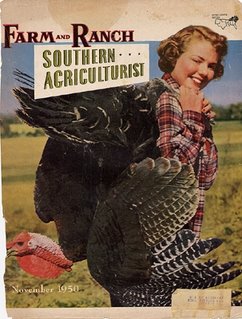
This is a only one day of 365 for us to be thankful and though it is sappy sentimentality (that's my synical self talking) here are my cheepened-by-the-internet thank yous.
I thank God for his gracious provision and deliverance in my own life. It is by his grace that I am alive.
I have supporting, liberating parents who helped to teach me that independent thought and search for answers is better than being told what to think. I am sure not to be in the church today had they just told me to be Christian or else. I thank God that he let them teach me and that he gave me so many uncomfortable questions to ask them.
I have a family, though loud and obnoxious (with special emphasis on obnoxious), is still the best family in the world. I thank God for them.
I serve in an international church that at times seems to act injustly, favoring rich Americans over the poor and sick here and in the rest of the world, yet is still willing to change (however slowly) seeking out new ways of helping the poor (this includes an uprising of a generation of pastors and laity who seek to reflect the influential power-under of Calvary and right wrongs of social injustice, God help us to do that more). I thank God for the Church of the Nazarene, may God help us to never put down the cross in favor of the sword.
I specifically serve a local church whose people have shown us grace and love and support. I thank God for a church that does so much for the poor of Dayton (Target Dayton) and throughout the world (Dominica) and who is open to the idea of ministry to the whole family, whatever that family may look like. May God continue to bless Parkview Church, so that it may bless the world.
Lastly and most importantly, I have a beautiful, loving wife whom I do not deserve. She shows me the very grace of God even when I'm in a bad mood and short with her. I thank God for her, every day. Thank you.
Wednesday, November 15, 2006
Skinny Dave or I Will Be Your God and You Will Be My People
Yesterday, Julia, Paul, and I went to a lecture with Tim Green. It was a refreshing reminder of the prophetic voice of undividedness in the Deuteronomic (Deuteronomy) and Deuteronomistic (Joshua, Judges, 1 & 2 Samuel, 1 & 2 Kings, Hosea, and Jeremiah) texts. This was a bit of a review of my first masters class at SNU last year with Tim. During the class, I was reminded of a friend of mine in Florida. I call him a friend, but I haven't really put forth any effort to stay in contact with him. Which of course, speaks more about my lack of friendship to him, but nonetheless, I'll call him friend even though it's been eleven years since I've seen him.
Skinny Dave was a crack addict. He was older than me by a few years. He had a wife and two children in another state. I don't remember how he had begun, but while I knew him, he was more than definitely an addict. He would be fine, we'd hang out, talk Rock and Roll, The Smiths, Morrissey, Elvis Costello (still my favorite), Pearl Jam, Midnight Oil, Living Color, the Clash, Green Day, and theology. We'd drive around, eat at Taco Bell, hang out, whatever. It's what we did. Then, every two or three months, he'd disappear.
He was living with his mom and dad and I'd get a call from them, "Hi Evan, have you seen Dave in the last couple of days?" I would tell them no, and they'd thank me and hang up. We all knew it had started. He'd go missing for a week, sometimes longer, and then he'd call his parents from jail or he'd show up somewhere strung out and broke. It didn't matter, though, Skinny Dave was my friend.
One time, in my naivete, I asked him what crack had that God didn't. Skinny Dave said, "There's no feeling in the world like it. There's no high like it. and when you're up, you are the most generous person in the world. Then, the bottom drops out from under you and you there's nothing you won't do to feel that way again. Nothing!"
Skinny Dave sometimes lived in a halfway house. A guy in the church, who did this sort of thing, would work with him. The guy talked to me about Dave a lot. One time he told me that what Dave needed was some tough love. I think it's tough to love a crack addict in the first place, but I don't think that's what he meant. After the binge, Skinny Dave would come back, penitent, and he'd be fine for a few months, ridding his body of the drugs, cutting out that crap inside of him.
We worked our way through the Deuteronomistic texts yesterday (and this is most clearly illustrated in Judges) and Israel would be going along fine, then they'd slip back into their old ways of worshiping Ba'al. God calling out to them, "I will be your God and you will be my people." Moses, Joshua, Samuel, Elijah, Josiah, and sometimes even God himself would remind them of God's deliverance and provision. Israel would fall into the tyrannical hands of some other nation who would enslave them and when they were tired of it, they would repent, and cry out. Once again, God would deliver them.
I hear Joshua saying "make your choice, God or Ba'al. Me and my clan will serve God." Israel would respond, "Of course we'll serve God, we wouldn't be God's people if we didn't." And Joshua would say, "Okay, but you can't do it." They couldn't either. I can't either. And Skinny Dave sure couldn't do it. Three months later, Skinny Dave would disappear, this time with his mother's car, using it to buy more crack.
In Moses' sermons in Deuteronomy he constantly tells Israel, "The Lord God is One, Love the Lord God with all your heart, with all your soul, and with all your strength." But they couldn't. Toward the end of the sermons, Moses finally gives them the answer they've needed. Deuteronomy 30:6 "The Lord will circumcise the foreskin of your hearts and the hearts of your children, so that you can love him with all your heart, with all your soul in order that you may really live." I can't do it, but God can.
I thought a lot about Skinny Dave yesterday and today and will probably think about him tomorrow. He reminds me of, well, me. I can't do it either. It is only by the grace of God that I have life. All that I have is his, but I can't do it. So, I pray that God circumcise my heart that I may love him undividedly. "Lord, I believe, but help me in my unbelief." I know without God's grace, I'll be back to my church growth, manipulative, productive, baalistic, idolatrous, consumerist ways in just a few months no matter the measure I take to purge all the poles, pillars, and priests of Asherah and Ba'al out of my life.
I don't know what has happened to Skinny Dave, but I hope he hears God's call as clearly as Skinny Dave has helped me to hear it. "I will be your God and you will be my People."
Skinny Dave was a crack addict. He was older than me by a few years. He had a wife and two children in another state. I don't remember how he had begun, but while I knew him, he was more than definitely an addict. He would be fine, we'd hang out, talk Rock and Roll, The Smiths, Morrissey, Elvis Costello (still my favorite), Pearl Jam, Midnight Oil, Living Color, the Clash, Green Day, and theology. We'd drive around, eat at Taco Bell, hang out, whatever. It's what we did. Then, every two or three months, he'd disappear.
He was living with his mom and dad and I'd get a call from them, "Hi Evan, have you seen Dave in the last couple of days?" I would tell them no, and they'd thank me and hang up. We all knew it had started. He'd go missing for a week, sometimes longer, and then he'd call his parents from jail or he'd show up somewhere strung out and broke. It didn't matter, though, Skinny Dave was my friend.
One time, in my naivete, I asked him what crack had that God didn't. Skinny Dave said, "There's no feeling in the world like it. There's no high like it. and when you're up, you are the most generous person in the world. Then, the bottom drops out from under you and you there's nothing you won't do to feel that way again. Nothing!"
Skinny Dave sometimes lived in a halfway house. A guy in the church, who did this sort of thing, would work with him. The guy talked to me about Dave a lot. One time he told me that what Dave needed was some tough love. I think it's tough to love a crack addict in the first place, but I don't think that's what he meant. After the binge, Skinny Dave would come back, penitent, and he'd be fine for a few months, ridding his body of the drugs, cutting out that crap inside of him.
We worked our way through the Deuteronomistic texts yesterday (and this is most clearly illustrated in Judges) and Israel would be going along fine, then they'd slip back into their old ways of worshiping Ba'al. God calling out to them, "I will be your God and you will be my people." Moses, Joshua, Samuel, Elijah, Josiah, and sometimes even God himself would remind them of God's deliverance and provision. Israel would fall into the tyrannical hands of some other nation who would enslave them and when they were tired of it, they would repent, and cry out. Once again, God would deliver them.
I hear Joshua saying "make your choice, God or Ba'al. Me and my clan will serve God." Israel would respond, "Of course we'll serve God, we wouldn't be God's people if we didn't." And Joshua would say, "Okay, but you can't do it." They couldn't either. I can't either. And Skinny Dave sure couldn't do it. Three months later, Skinny Dave would disappear, this time with his mother's car, using it to buy more crack.
In Moses' sermons in Deuteronomy he constantly tells Israel, "The Lord God is One, Love the Lord God with all your heart, with all your soul, and with all your strength." But they couldn't. Toward the end of the sermons, Moses finally gives them the answer they've needed. Deuteronomy 30:6 "The Lord will circumcise the foreskin of your hearts and the hearts of your children, so that you can love him with all your heart, with all your soul in order that you may really live." I can't do it, but God can.
I thought a lot about Skinny Dave yesterday and today and will probably think about him tomorrow. He reminds me of, well, me. I can't do it either. It is only by the grace of God that I have life. All that I have is his, but I can't do it. So, I pray that God circumcise my heart that I may love him undividedly. "Lord, I believe, but help me in my unbelief." I know without God's grace, I'll be back to my church growth, manipulative, productive, baalistic, idolatrous, consumerist ways in just a few months no matter the measure I take to purge all the poles, pillars, and priests of Asherah and Ba'al out of my life.
I don't know what has happened to Skinny Dave, but I hope he hears God's call as clearly as Skinny Dave has helped me to hear it. "I will be your God and you will be my People."
Tuesday, November 07, 2006
Norman Borlaug
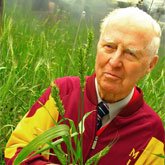
Heroes are great. The people we look up to and who influence us are so important. Our parents, pastors, great theologians and teachers, all keep us going. I want to introduce you to one of my heroes, Norm.
Norm is a great guy. He was born March 25, 1914 and while his birthday will probably never be celebrated the way it should, you will remember his name when this story is finished. Norm was the descendant of Norwegian parents. He grew up on a farm in Iowa and attended a one-room school house until the ninth grade. Sports were important to Norm, as to any kid his age. He played baseball and wrestled in high school.
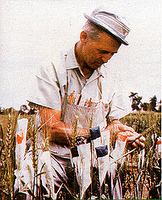
It was his grandfather who pushed him academically. He wanted nothing more for his grandson than to get a good education and to work hard. As a result, after high school Norm attended the University of Minnesota. Because of financial strains, though, he frequently had to dropped out and earn money for tuition, room, and board. During one hiatus from school, Norm worked for the Civilian Conservation Corps where he helped jobless men work federal projects. While working for them he discovered that many of the men were starving and malnourished.
When he returned to school, he studied agricultural biology and plant pathology. In 1942, Norm earned his PhD. It was in 1944 when he started his work in Mexico. The Rockefeller Foundation needed someone who could figure out how to increase wheat yields in the agricultural areas and to help starving folks out of poverty. He did just that. Norm genetically altered wheat and corn to grow on shorter stalks, bigger heads with increased yields. Because of his work literally millions were saved.
 By 1960, Norm was looking somewhere else in the world. By the mid Sixties, he was in India and Pakistan where one of the world's worst famines was killing millions of children, women, and men. Again, using the altered strains of wheat and corn, Norm saved millions. The decade was not without adversity. Between politics of the region, Mexico, and US Customs, Norm almost failed.
By 1960, Norm was looking somewhere else in the world. By the mid Sixties, he was in India and Pakistan where one of the world's worst famines was killing millions of children, women, and men. Again, using the altered strains of wheat and corn, Norm saved millions. The decade was not without adversity. Between politics of the region, Mexico, and US Customs, Norm almost failed.By 1970 it is estimated that Norm literally saved over 1 Billion people. For those of you in the UK that's a thousand million. That was also the year that Norm won the Nobel Peace Prize for his humanitarian efforts. But the award slowed him down. According to an interview with David Turrant of the Dallas Morning News, Norm said, "It was a disaster as far as I'm concerned. You get pushed into so many things. A lot of your energies are cut off from the things you know best. Some of them you have to do. Because you end up being the spokesman for science in general."
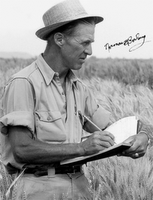
Now while Dr. Norman Borlaug fights to keep hungry people fed in Mexico and Africa he is forced to fight extremist organizations like GreenPeace who convince corrupt governments in Africa from receiving genetically altered seeds. GreenPeace calls such food "frankenfoods" and protests, at times violently, their use. GreenPeace supports the strict use of organic foods in supermarkets and in homes. What they don't tell you is that if all of the earth's farmable land (that would include cutting down every rain forest in the world) were used to grow and raise only organic foods, two thirds of the world's population, that's over 4 billion (4 thousand million) people would die. While Dr. Borlaug feeds the world, GreenPeace would starve it to death and they're not alone. There are other organizations (such as Organic Consumers Association and Rainforest Action Network) that allow people to die in the same way. I prefer to allow people who are starving to death go ahead and eat while GreenPeace searches for evidence (any . . . at all) that genetically altered foods can hurt us. Thank you GreenPeace for caring so much.
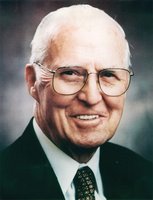 However sarcastically I treat GreenPeace, my prayers are with Dr. Norman Borlaug. May God bless him as he does what the Church doesn't even seem to be able to do. Perhaps we, the Church, could see Dr. Borlaug as a hero and may he inspire us to follow in the footsteps of the Christ of Our Lord in feeding the hungry! If you would like to find out more about Dr. Norman E. Borlaug go here or here or here.
However sarcastically I treat GreenPeace, my prayers are with Dr. Norman Borlaug. May God bless him as he does what the Church doesn't even seem to be able to do. Perhaps we, the Church, could see Dr. Borlaug as a hero and may he inspire us to follow in the footsteps of the Christ of Our Lord in feeding the hungry! If you would like to find out more about Dr. Norman E. Borlaug go here or here or here.
Thursday, November 02, 2006
This Is a Casting Call for One Thing

What that one thing is I don't know. What I do know is that I received one forwarded email this morning and it sparked my interest. How one email sparks interest, I'll never know, especially considering it was a forward. You've all gotten one before. I know you have. You delete it, or ack, you read it. Some of you do something even worse, you forward it to everyone you know.
 That one becomes many. Some of you, and I among you on this one, think yourselves discerning and read it. Then, again thinking yourself discerning, you choose one among many forwards to forward and maybe you only forward that one to only one other.
That one becomes many. Some of you, and I among you on this one, think yourselves discerning and read it. Then, again thinking yourself discerning, you choose one among many forwards to forward and maybe you only forward that one to only one other.All of that to say, today I recieved one that sparked in me the idea for "One Thing." This will be a post theme for our blog. Occasionally when I find an appropriate "One Thing" I will post it under that heading here on this blog.
 So, without further discussion, here is the One Thing that caught my breath today. It is an artist by the name of Peter Callesen. Apparently he makes things with One sheet of paper. So, enjoy. If you would like to see more of Peter Callesen's work visit him here. If you come across One Thing that catches your eye, email me at thesecretllama@sbcglobal.net or comment here.
So, without further discussion, here is the One Thing that caught my breath today. It is an artist by the name of Peter Callesen. Apparently he makes things with One sheet of paper. So, enjoy. If you would like to see more of Peter Callesen's work visit him here. If you come across One Thing that catches your eye, email me at thesecretllama@sbcglobal.net or comment here.
Thursday, October 19, 2006
Grief as Love in the Presence of Absence

In dealing with Don's death, I have recently sought the comfort of God through the writings of N. T. Wright. Specifically, I have read For All the Saints? Remembering the Christian Departed. Through it all, after dealing with purgatory, heaven, hell and all that, Wright shares three parts to his conclusion.
First, "What happens to the soul?" He avoids all talk of the soul until the very end, and in truth still avoids it somewhat. Personally, I am reluctant to talk of the soul. Scripturally the dichotomy is post-exilic. And really, it is stressed the most in these binarily opposed, Platonic terms by Paul (obviously Roman educated). Wright however settles without settling (and I think I like this). In reference to Revelation 6, he refers to the soul as a "useful way of talking about personal continuity despite bodily discontinuity." Wright talks about the Cambridge physicist/theologian (a combination of biblical proportion, snicker), John Polkinghorne who said, "God will download our software on to his hardware, until the day comes when he gives us new hardware on which to run our own software once more." Clever and without the Platonic mishmash. Polkinghorne leaves gray what the New Testament leaves gray. Wright writes, "You could simply say, if you like, following Polkinghorne's image, that those who have died as a part of God's people are sustained in life by God. Couple that with Paul's remark about 'departing and being with Christ', and that's about as far as you can go in terms of what the New Testament teaches."
Next, Wright tackles "Praying for and with the Dead?" I think here we have an interesting problem for most protestants. The assumption is that without purgatory (Wright clearly doesn't believe in purgatory, by the way) there is no reason to pray for the departed. Because of the promises of Christ, there is no need to convince God to accept those whom he has already accepted. However, Wright says, "True prayer is an outflowing of love." When we love someone, we will want to pray for them, no difficulties, no needs, but merely "because holding them up in God's presence is the most natural and appropriate thing to do." God also chooses to work through our prayers (personal emphasis on chooses to those who think he must) to bless others. Our love doesn't stop at death. Wright might say that grief is love in the presence of absence. Grief is "the form love takes when the object of love has been removed; it is love embracing an empty space, love kissing the air and feeling the pain of that nothingness." He concludes that there is no reason why love ends at death. Love continues and can continue through the prayers that lift the loved one up in prayer before the mystery of God. The prayer for the departed becomes a celebration! Here, here, Wright!
Finally, death is not the end, but neither is the rest (heaven, paradise, etc.) after death. Our hope is in the Resurrection. We believe in Christ's Resurrection, his the first, and we believe in our own resurrection. The Apostle's Creed and Scripture are clear regarding this bodily resurrection to come. Wright talks extensively about the disparity between the Scriptures and the belief of many folks in the eternity in heaven. Heaven/Paradise is not our final destination, the resurrection and the New Heaven and New Earth as one is! So, Wright has encouraged a change in the liturgy of funerals. No longer should we say, "May the souls of the faithfully departed rest in peace." He encourages, as would I, dropping "the souls of" and adding "and rise in glory."
So, I say it now, May the departed, through the mercy of God, rest in peace and rise in glory. Grief is such a hard thing for me to talk about. I still cry at the mere mention of my brother's name or the playing of B. B. King and Eric Clapton. But it is gradually getting (not easier) better. Such is the process of grief. I pray in love, that Don's rest in the presence of Jesus Christ fills him with all the grace of God and that same grace will fill me and comfort me and my sister, Marsha and their boys Chad and Chandler and the rest of our family. May he rest until we rise again in glory. Amen.
Monday, October 16, 2006
Mythology, Time, Space, and Narrative
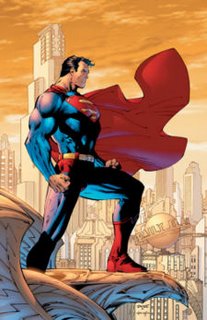
I have been delving into the retcon mythology of Clark Kent and Superman's beginnings through the television show Smallville. So far, I have seen the first four seasons and am awaiting, not so patiently, the fifth to be returned to the local movie store. Superman happens to be my favorite of all superheroes. Sure, this says a lot about my shallow popculture tendancies, but nonetheless, it's true. After this summer's movie, perhaps not the box office success it would have been had Pirates of the Carribean 2 not come out a week after Superman Returns, this childhood love for the spandex wearing superhero was reaffirmed. When I was a kid, I had Superman Underoos and I'm ready to publicly admit it. (Oh, well, there go my chances at a promising political career, shucks!) I would often visualize myself running alongside the car on family vacations, and even dream about helping folks out of jams perhaps winning the affection of some love struck reporter. Alas, I grew up. Now, I watch others act it out on the television, still somewhere deep in my imagination, dreaming of being the righter of wrongs.
However, in thinking so much about it and watching so much of Smallville, I have wondered how Superman et. al. fit into mythology. What purpose does mythology serve? Does it still serve that purpose today? For folks who find themselves in postmodernity? Do we allow ourselves to be moved by mythology?
As a Christian, Wesleyan-Arminian, Open theist, and poet, I have to say that I know we have mythologies (classically speaking of course). We have our creation mythologies (sic), and our flood mythology (sic), and the rest. And they do what mythology has done for folks throughout time. They are an oral, now written, explaination for the world around us. Now, to merely speak of scripture in these terms would be shortsighted as scripture is not about how or what, but rather about who. In this case, God created, etc. For me and those out there like me, though I understand they are few and far between (at least who would admit to it), Scripture is the written revelation of God to his people. These mythologies still define us, help to shape us.
Robert Graves, author of Greek Myths and Legends, wrote, "True myth may be defined as the reduction to narrative shorthand of ritual mime performed on public festivals, and in many cases recorded pictorially." In fact, many myths stem from many cultural needs. Do we have cultural needs as Americans as much stuck in as freed by postmodernity? Then, do we have mythologies and would these mythologies be super heroes?
Jerry Siegal and Joe Shuster created Superman in 1932 while living in Cleveland, Ohio. This was during the Great Depression and there was certainly cultural need for mythology. Of course Action Comics #1 featuring the Kryptonian didn't debut until 1938. This superhero wasn't there to provide a fantastical escape, as some opponents to entertainment would deduce, but rather to inspire hope. While certianly more jingoist now than it would have been at the time, Superman was there to defend "Truth, Justice, and the American way." His positive tone and historically moral opposition to evil constantly sold more and more comic books.
Julia and I have often talked about how different Superman is than other superheroes. There is never the question of whether or not he will do what is right. That just does not seem to be the point. Rather, Superman has come to right the wrongs. The story of how he became Superman is more important than whether or not he will choose good or evil. The question of which came first, Clark Kent, Kal-El, or Superman, is more important a question than whether or not he will choose good or evil. The choice is still there, mind you; Superman still chooses to do good over evil. For other superheroes this is not the case. It is simply not that simple.

So, is Superman a part of our American/Western (not all bad) mythology? Does he inspire hope? There are criticisms of Superman that associate him to Moses or even a Christ figure. And though both allusions are supported, the illustration would fall short.
What remains is that perhaps a boy in his Superman underoos, flying around his house with a blankey cape tied around his neck is inspired to hope. Perhaps a God who loves us so much that he would rather die than live without us is free to use such entertaining mythologies to inspire hope in us.
Friday, October 13, 2006
Ramblings at Apple Butter Time
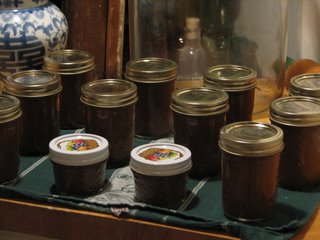 Today we made 2 batches of apple butter. Mom gave me about 5 lbs. of the apples she had picked with Carolyn at home (Havana). We bought another 3-4 lbs. today and spent several hours peeling, slicing, cooking down, stirring and canning them into some very tasty apple butter. At last, Autumn is here.
Today we made 2 batches of apple butter. Mom gave me about 5 lbs. of the apples she had picked with Carolyn at home (Havana). We bought another 3-4 lbs. today and spent several hours peeling, slicing, cooking down, stirring and canning them into some very tasty apple butter. At last, Autumn is here.Evan began his canning career last year when someone gave us a Walmart bag full of tiny pears. They were going bad, because we weren't eating that many. He already had an inkling to make some salsa and can it for Christmas gifts, but when he decided to make pear butter out of those gift pears, he caught the canning bug. He eventually canned 2-3 batches of hot hot and southwestern salsa, pear butter, and pickled garlic.
Speaking of canning, jars, and such, while I was at home last week I had to get a ladder, lug it out to the saw mill and pilfer through several stacks of canning jars my dad had stored up in the rafters. I was looking for any extra old blue jars to add to my old jar collection. I found 4 more. Here's a picture of my jars.

I usually find mine like I did last week, in Dad's barn, in among the rafters of a building, or digging them up in our woods.
pickyourown.org gives a brief history of the canning jar. Among the interesting information,
"Meanwhile, in Buffalo, NY, William Charles Ball and his brothers (Lucius, Lorenzo, Frank C., Edmund Burke, and George Alexander) were in the business of manufacturing wood-jacketed tin cans for the storage of oil, lard and paints. In 1883, the Ball's changed from tin to glass containers and then, in 1886, to glass fruit jars. They moved their operations to Muncie, Indiana, after a fire at their Buffalo factory. Muncie (where a supply of natural gas had been discovered) was chosen because the city was offering free gas and land to rebuild the factory. "
There's more about different companies and types of jars there. I think I have mostly Atlas and Ball.
I like going home because of my pilfering, or rather, rescueing abilities. I have rescued a number of crocks, milk glass, old bottles, and my most recent rescue pictured here:
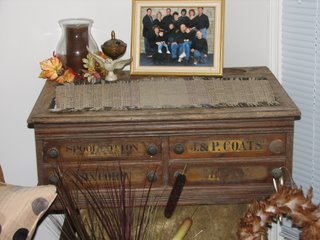
Canning reminds me of home and those hazy memories I have to think hard to think back to . . . my Dad used to can all sorts of stuff in the summer kitchen next to the house. Pints and pints of tomates, which he would drink all winter to keep from getting sick. The wonderful blackraspberry jelly he made when he had a grove of bushes. He would give almost all of them away at Roat Christmas. I guess we're carrying on the tradition.
Monday, October 02, 2006
One Year
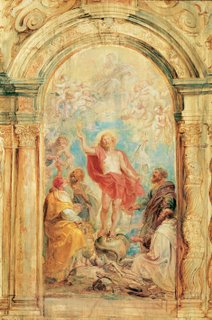
His laugh was infectious. Whenever something funny would come up, not something mildly funny that the rest of us would laugh at, but rather something truly and mysteriously funny that could only be delivered by Bill Murray, Steve Martin, Chevy Chase, or Jerry Lewis, Don would start to laugh and that was the end of world as we knew it. From there the rest of the room would catch it and it would continue spreading until finally everyone with tears in eyes would be croaking out the laughs. Don Cuttill could laugh as no one could laugh. And when he did, everyone else was consumed with laughter. I think the contagiousness of his laugh had something to do with the size of his heart. Only someone with a huge heart could laugh the way he did.
I remember one time, when I was in college and living with Don and Marsha in the old Southshores house, we had to replace the wax ring seal underneath the toilet in the basement. After unscrewing the bolts we tried to lift the toilet. Don had to move into the shower to set the toilet aside. I was on one side and Don on the other. Don's foot hit the lip of the shower and he tripped. I dropped the toilet in the shower and it shattered. We no longer needed to merely replace the wax ring; we had to replace the toilet as well. Though it was thouroughly enraging, I laugh about it now, and I'm sure he does too. The picture of Don dropping the toilet and it shattering stirs other memories of Don.
When we'd drive around together the radio tuned to the classic rock station, and Led Zeppelin would come on. Don would inveriably say, "A little Led for the head." It was cool no matter how many times he'd say it.
Don liked good movies. Caddyshack, Groundhog Day, Stripes, Young Frankenstein, The Nutty Professor, It's a Mad Mad Mad Mad World all brought on that infectious laugh. Sometimes I watch Groundhog Day just to remember Don. I've easily watched it five times in the last month and a half.
Don is a Christian, which means that this November 1st (All Saint's Day) I will be celebrating him. I will be praying that the Father's glory fills him continually as he basks in God's presence in Paradise, Don sitting next to all those other saints of the church and he's playing a heavenly Martin guitar, strung by angels themselves. You know at the feast they serve Krekel's burgers and Famous Dave's barbeque. This is not the final destiny for which he is bound, though. We all await the resurrection.
The golden evening brightens in the west;
Soon, soon to faithful warriors cometh rest:
Sweet is the calm of Paradise the blest.
Alleluia!
I miss him terribly. Writing this is harder than you can imagine and it's taken a week. I was very young when my sister and Don were married. They lived with us for a while and I really have no memories without him. That is to say until this past year.
Sunday, October 01, 2006
Woods

Yesterday I came home to my mom and dad's house for a few days of much needed retreat. I think I tend to build up this place in my mind a bit more than I should. I want to walk in the woods. Pick up strange stuff. Find buried pottery. Then when I come back it's really hot. There's a lot of poison ivy that I have to avoid. At night it is more starless, blacker than I'm comfortable with.
Last night as I was falling to sleep, just outside my window (on the second floor), coyotes started yelping. They were running through the trees. They seemed to be surrounding the house. Then a loud howl. Silence. More yelping. Another howl. Then silence.
I thought of my ancestors who carved out cabins and houses in these woods. Hearing those coyotes only a few feet away in the surrounding woods. I finally fell asleep.
Wednesday, September 27, 2006
Kid U Conference
Evan and I just spent the past couple days in Columbus at Grove City CoN at the Kid U conference sponsored by Kidology. I have to say for the price and the distance it was well worth the money. Evan even said that in some ways he found it more valuable than CPC. It is a good length (Fri pm and Sat am-afternoon). They had a fairly good mix of visionary and practical information.
The speakers placed a heavy emphasis both avoiding burnout and family ministry. Both of these topics have been near to our hearts lately, so it is good to hear that this is what others in the field are talking about as well. BTW, get ready for family ministry because it is redefining not only how pastors view their role (vocational expectations, placing the responsibility for children's spiritual lives back into the hands of parents, etc.) but also how we view the church in general.
My main comments however, stems from a conversation Evan and I had with a NCPA (Nazarene Children's Pastor's Association) board member and the upcoming Ignite! conference in Kansas City. I had posted a rant just a few days ago regarding my disappointment with what I felt was yet another lazy attempt by the CoN to "resource" its local ministers. My rant as follows: "OK, I know this is a little off subject, but I just read the info on the NCPA (Nazarene Children's Pastors Association) conference in October and I think the problem of Naz white flight [HQ moving to Lenexa] continues because of all-around general laziness (theological, ethical and otherwise). There's so much that could be said right now, but essentially, why would I pay over $200 in conference fees alone to hear what is going on in Lenexa, Kansas in children's ministry? Ohio, perhaps? Oklahoma . . . really? Something is actually going on there???Incredibly (or not) three of the four speakers for the conference hail right from the KC area. (No hotel or travel?) But please tell me that there are other people -- yes, even Nazarenes -- who have as much to offer as these people who could use a wee bit more street cred right now (besides the fact that they or their spouse have been affiliated with HQ in the past) . . . I mean, who cares if they're "Wesleyan" at this point. Anyway, I bring this up because it seems to further support your suggestion of insulation, us vs. them mentality, i.e. running for the hills that is apparently paralyzing the denomination. We are simply more willing to pay the price for mediocrity than do whatever it takes to be citizens of the Kingdom of God here on earth -- even if it means losing ourselves in the process. All for today. Sorry, it's 1:45 a.m. ET which I think makes it even more irritating. Disclaimer: Evan told me to go ahead and post this. Of course, he was asleep when he gave me his blessing. I'll have nothing to do with it tomorrow."
So then, my conversation with said board member at KidU was very enlightening. What she explained to be the purpose of this conference was far different from the promotional material posted on the website. http://www.nazarene.org/ssm/children/ncpa/ignite.html. As she stated it, some members of the board asked themselves, what is the best thing about us (the NCPA group) getting together each year (which they do 2 x a year)? They came to the conclusion that the opportunities that they had for sharing experiences and ideas with one another, encouraging colleagues in specific situations, and general networking were the most valuable things they did during their time together. They wanted to give this opportunity to others not serving directly on the board. But the only way this basically voluntary group could do this was through HQ involvement Sunday School/children's ministry. Hence K.C.. Hence speakers speaking gratis. Understood.
NCPA, from my limited understanding of its history has been one of the few recognized voices advocating for children's ministry in the CoN. They are doing what they can. I appreciate that. I don't know that Evan will be able to attend this conference, but I hope it is able to fulfill the expectations set out by the NCPA. This is an effort by children's pastors to do what the denomination seems to be reticent to do from within. But considering the church almost disbanded children's ministries on a denominational level at one point, I suppose it's better than nothing.
The speakers placed a heavy emphasis both avoiding burnout and family ministry. Both of these topics have been near to our hearts lately, so it is good to hear that this is what others in the field are talking about as well. BTW, get ready for family ministry because it is redefining not only how pastors view their role (vocational expectations, placing the responsibility for children's spiritual lives back into the hands of parents, etc.) but also how we view the church in general.
My main comments however, stems from a conversation Evan and I had with a NCPA (Nazarene Children's Pastor's Association) board member and the upcoming Ignite! conference in Kansas City. I had posted a rant just a few days ago regarding my disappointment with what I felt was yet another lazy attempt by the CoN to "resource" its local ministers. My rant as follows: "OK, I know this is a little off subject, but I just read the info on the NCPA (Nazarene Children's Pastors Association) conference in October and I think the problem of Naz white flight [HQ moving to Lenexa] continues because of all-around general laziness (theological, ethical and otherwise). There's so much that could be said right now, but essentially, why would I pay over $200 in conference fees alone to hear what is going on in Lenexa, Kansas in children's ministry? Ohio, perhaps? Oklahoma . . . really? Something is actually going on there???Incredibly (or not) three of the four speakers for the conference hail right from the KC area. (No hotel or travel?) But please tell me that there are other people -- yes, even Nazarenes -- who have as much to offer as these people who could use a wee bit more street cred right now (besides the fact that they or their spouse have been affiliated with HQ in the past) . . . I mean, who cares if they're "Wesleyan" at this point. Anyway, I bring this up because it seems to further support your suggestion of insulation, us vs. them mentality, i.e. running for the hills that is apparently paralyzing the denomination. We are simply more willing to pay the price for mediocrity than do whatever it takes to be citizens of the Kingdom of God here on earth -- even if it means losing ourselves in the process. All for today. Sorry, it's 1:45 a.m. ET which I think makes it even more irritating. Disclaimer: Evan told me to go ahead and post this. Of course, he was asleep when he gave me his blessing. I'll have nothing to do with it tomorrow."
So then, my conversation with said board member at KidU was very enlightening. What she explained to be the purpose of this conference was far different from the promotional material posted on the website. http://www.nazarene.org/ssm/children/ncpa/ignite.html. As she stated it, some members of the board asked themselves, what is the best thing about us (the NCPA group) getting together each year (which they do 2 x a year)? They came to the conclusion that the opportunities that they had for sharing experiences and ideas with one another, encouraging colleagues in specific situations, and general networking were the most valuable things they did during their time together. They wanted to give this opportunity to others not serving directly on the board. But the only way this basically voluntary group could do this was through HQ involvement Sunday School/children's ministry. Hence K.C.. Hence speakers speaking gratis. Understood.
NCPA, from my limited understanding of its history has been one of the few recognized voices advocating for children's ministry in the CoN. They are doing what they can. I appreciate that. I don't know that Evan will be able to attend this conference, but I hope it is able to fulfill the expectations set out by the NCPA. This is an effort by children's pastors to do what the denomination seems to be reticent to do from within. But considering the church almost disbanded children's ministries on a denominational level at one point, I suppose it's better than nothing.
Tuesday, September 26, 2006
Reflection Part 2: First things first

I'm posting this first, but you'll read a post of some of my initial reflections upon the KidU conference Evan and I attended last Friday and Saturday later.
A lot was said about family ministry - expanding our vision for what it means to minister to the spiritual needs of children. And I think it's true - as a matter of vocation for pastors and responsibity for parents - to return that responsibility for children's spiritual lives to the parents. That, however, represents a reality shift for how many churches perceive the purpose and place of children in their local church.
More on that ask Evan.
The one concern that I have stems from a few comments I heard throughout the day. My impression was that we take care of "our own" children first. It may even be ok to favor them. Then our ministry to other children kicks in . . . Is that true? Do "our own" children matter most simply because we have legal claim to them?
Please tell me, is it creepy that Evan and I, having no children of "our own," still work in children's ministry? What in the world would motivate us to take on the spiritual lives of other people's children?
There's got to be something more than family ministry - as important as that shift is - because the family itself reflects the relationships we find as citizens of the Kingdom of God. Just as a man and a woman coming together is a symbol of Christ and his Church. We are no longer mother and son, father and daughter. We are all brothers and sisters in Christ.
Monday, September 25, 2006
Family Day
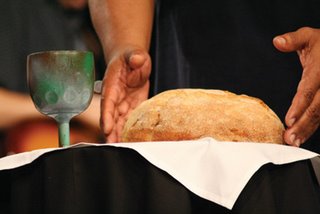
Today is Family Day. Family Day began in 2001 by the National Center for Adiction and Substance Abuse at Columbia University. Visit their site here. CASA Research "consistently finds that the more often children eat dinner with their families, the less likely they are to smoke, drink or use drugs. The conversations that go hand-in-hand with dinner will help you learn more about your children's lives and better understand the challenges they face."
Family Day was created as a way to help reduce subtance abuse in children and is celebrated on the fourth Monday in september every year. On the web site, CASA says, "Family Day is not just for families. It is a day for all to celebrate, including businesses, unions, religious organizations and community groups. The symbolic act of regular family meals should be promoted and celebrated inside and outside the home throughout the year."
Isn't it interesting that this research organization at Columbia University is telling us to do what we need to be doing as the Church every Sunday. As citizens of the Kingdom of God, we have a meal that we eat together (although as Nazarenes we don't receive often enough), Holy Eucharist. Remarkably, it too is a meal that should be linked to the reduction of adiction, poverty, AIDS, violence, greed, and war. Perhaps if we received more often, the world would see the grace of God spill out of us more often into a world that so desparately needs it.
I am of the opinion that the best possible response to worship and a sermon on Sunday, is by washing it down with Holy Eucharist. I am also of the opinion that the best response to Holy Eucharist is to go into the world and make suffering folks lives better.
Thursday, September 21, 2006
Riptide
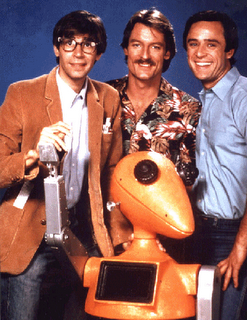
Riptide was a television series from 1984-1986 involving two Vietnam buddies who opened a detective agency in Los Angeles. It is classic 80s shtick now, but at the time it was pretty cool. Cody Allen (Perry King) and Nick Ryder (Joe Penny) who ran the Riptide Detective Agency, recruited a "genius" who worked with computers, Murray 'Boz' Bozinsky (Thom Bray). Boz had a robot named Roboz. They also had a Sikorsky S-58T (aka, Sikorsky H-34 Choctaw) helicopter, painted pink with a huge gaping mouth painted on the front. It was called Screaming Mimi. I remember my brother loving this show (of course he also liked The Dukes of Hazzard and Charlie's Angels). I thought it was all right, but I was a more serious television watcher (Miami Vice, A-Team, and McGuyver). I thought of this show the other day with seemingly no reason to make the connection. I don't know why I thought of it; it just came to mind.
I think television gets a bad rap. Now, I am a voracious reader, and my loyalty to literature should never be questioned, but it's easy for me to have a love for both television and books as I sleep less than most people. Granted, if given the choice between the annihilation of either, I would keep books near me and guard them forever. All that said, television still gets a bad rap.
I think the problem is not watching television, it is the passive watching of television. I can come home from work exhausted, and believe me that is a possibility as a pastor, and just sit passively in front of the television passing the hours away and failing to use my imagination. But I don't. I cannot tell you the last time I passively watched television. When I watch I allow the show to engage me, making connections with television, films, literature. I watch critically, asking "Why did the writer choose that turn of phrase?" or "What a brilliant angle on that shot." James Burke, writer and creator of Connections understands the importance of linking things. Now, with all that said, there are only certain shows I watch. I am very picky.
Sure all of this seems like the justification of a couch potato, but it's true nonetheless. Oh, yeah. I probably should mention that while Julia and I have a library that won't fit into one room, we only have a 13" television without cable. (Mmm, more justification.) So those of you who proudly bash television with your holier than thou attitudes, I say stop beating up on the poor thing. In ten years we'll look back at most of what we watch and remember Riptide. It was fun at the time, but now it's a bit dorky.
Tuesday, September 19, 2006
From Oppression and Violence He Redeems Their Life!

Today I read Psalm 95. I love reading the Psalms just as I would read a Billy Collins poem or Gwendolyn Brooks or Mark Strand. I read it out loud in my mind, uttering every syllable with my imagination's tongue. At first, the poem is a bit patriotic, and I'm not a particularly patriotic person (that may be an understatement). But it is not a patriotic poem. It is a poem that identifies foundational characteristic traits of God to a new king perhaps during an inauguration.
Isn't that interesting how I began the post waxing about how I read poetry and then went into some sort of explanation. Now, as I back-peddle this tricycle, I have to bring up something else entirely. Eugene Peterson, in his book Under the Unpredictable Plant, writes about the poet Czeslaw Milosz and his understanding of imagination. Peterson paraphrasing Milosz writes, "The minds of Americans have been dangerously diluted by the rationalism of explanation." With that explained, you know why I wrote from imagination into explanation in the above paragraph. Nice.
Back to Psalm 75. As I read this poem, I couldn't help but think of the massive numbers of people in this world dying without clean drinking water, any food, or of AIDS. Numbers in the thousand-millions. But the Psalm states very clearly of God:
"For he delivers the needy when they call,
the poor and those who have no helper.
He has pity on the weak and the needy,
and saves the lives of the needy.
From oppression and violence he redeems their life;
and precious is their blood in his sight."
If we are truly the embodiment of the Risen Lord Jesus Christ, should we not act on this? Too long have we as Christians allowed modernity to force us into contentment with Jesus as our spiritual savior. I happen to believe that when the Risen Lord comes to town, things get better. I happen to believe that "from oppression and violence God redeems their life!" What are we doing about it. I also believe that freedom from oppression and violence can only come through the cross of Christ. Here are a few ways you can help.
Go here for the One Campaign.
Go here to Save Darfur.
Go here to Heifer International.
Go here to sponsor a child.
Heifer International works to help folks in rural areas around the world become more self-sufficient. This year our Kid's Church offering will go to this event. I will be encouraging them to give more than they normally would. Just before Christmas, the fifth and sixth graders will get together to decide how to spend the money raised in the "Best Gift Catalog in the World."
Wednesday, September 13, 2006
Right, Left, Whatever

When I was in high school, I was a Republican. Not just your average Republican, I was a conservative Republican. I was involved in conservative Republican sorts of things. I listened to conservative radio, particularly Rush Limbaugh. I was loud and most importantly, I was always right.
Mariner High School in Cape Coral, Florida had a cable access news program of which I was a part. We produced news stories, anchored the news and announcements, and I was given an editorial commentary every week. I used this time to rant and rave about current issues, politics, and much more. I enjoyed the opinions that I held and enjoyed the voracity and determination that I held in being right. I believed the only place for a Christian who wanted to transform this world was in politics and if one were Christian then one must be conservative and republican.
Wow, was I wrong.
Obviously, for those of you who know me, I have changed over the past decade. Thankfully, I am more thoughtful than I once was. I bring this up because I heard an interview on On Point, a show on NPR. The interveiw was with Gregory A. Boyd, a proponent (as am I) of an Open view of God. He has a new book, that I have on order at Amazon, called The Myth of a Christian Nation. In the interview Gregory Boyd talks about the idolotry of movement of Christians into politics, referencing Jesus' refusal to be caught up in the movement of folks that wanted to make him king, and (obviously as to the title of his new book) the myth that exists in many conservative Christian circles regarding America as Christian. Boyd made some very interesting points, especially regarding Christians affiliating themselves first with the Kingdom of God, not with any particular politcal party. Check out the interview here. Buy the book here.
I say all of this in part as a confession. I've probably said this before, but I interviewed at a church once and was confronted after the interview. A member of the church said to me, "All of this is good, but the real question is: Are you a Democrat or a Republican." I answered quickly and without really thinking about the possible consequences, "Neither. I am a citizen of the Kingdom of God."
I don't think it was the answer the church member was looking for, but it is true. Anyway, what do you all think about the interview, et. al.?
Tuesday, September 12, 2006
A Boy King

James Burke writes in his book The Day the Universe Changed:
"You are what you know. Fifteenth-century Europeans ‘knew’ that the sky was made of closed concentric crystal spheres, rotating around a central earth and carrying the stars and planets. That ‘knowledge’ structured everything they did and thought, because it told them the truth. Then Galileo’s telescope changed the truth. As a result, a hundred years later everybody ‘knew’ that the universe was open and infinite, working like a giant clock. Architecture, music, literature, science, economics, art politics – everything – changed, mirroring the new view created by the change in the knowledge. . . . At any time in the past, people have held a view of the way the universe works which was for them similarly definitive, whether it was based on myths or research. And at any time, that view they held was sooner or later altered by changes in the body of knowledge."
Now for an 8 year old boy named Josiah, it was not much different. For Josiah, Galileo’s telescope came from the mouth of one of King Amon’s messengers who carried the horrifying news that Josiah’s father, the king was dead. A political assassin was responsible for Josiah’s fatherless nights. There would be no more tucking in; no more nightly prayer with his father; no more songs just before lights out. Josiah’s universe changed. But with this terrible news that his father was dead, came also a crown. And for an eight-year old boy who’s mind should be on his next little league game is this was a huge deal. This boy’s world was turned on its ear and he was only eight.
Josiah was crowned king of a nation at the age of eight. I want each of you to think back to when you were eight, and think of who you were, what you did, what was important to you. I was probably a bit different than you. By the time I was eight, I had been Superman, a member of an elite paramilitary group called the A-Team, the next 007 agent, otherwise known as 008, and I could turn myself invisible by just wearing my jacket backward. At eight, I would sneak time to watch MTV and Nickelodeon. At eight girls were still kind of disgusting.
It was very different for Josiah. At eight he was the king of a nation. At eight he recognized the importance to live for God even though his father, Amon, and grandfather, Menasseh, only modeled idolatry for the young king. Josiah’s convictions had already been formed. But his knowledge of the universe changed drastically and he was only eight.
Okay, okay, you get it already. You know where I’m going with this. You’ve heard it before. Children are important to God. We know that God has hidden the things of his Kingdom “from the wise and learned, and revealed them to little children” (Matthew 11:25). But do you get that you must become like little ones to enter the Kingdom of God? Do you really see that?
I say certain things as I minister to children and families. Julia calls them Evanisms. You will hear me say, “Children are not the future of the church. Children are to be expected to be and accepted as the church here and now.” You will also hear me say, “Children, just like adults, are called to be whole and holy citizens of the Kingdom of God with all the rights and privileges therein.” These things are not easy to grasp, and to our sensibilities they are just as radical as Galileo’s telescope.
Josiah grew up differently than his father and grandfather. He feared the Lord. He worshiped God and even began to rebuild the temple of the Lord. He did these things because he knew it was right. When Helkiah brought the lost sermons of Moses to Josiah and they were read aloud to him, the universe changed again. When Josiah heard the words of Deuteronomy, “Love the Lord your God with all of your heart and soul and mind” he tore his clothes. He went to the prophet of Israel, Huldah, and she told him that while he caught the eye of the Lord and would not be punished, God would still allow Judah to be exiled because they did not adhere to his commandments. This news of Judah’s destruction did not stop Josiah. He mounted his men and rode throughout the country destroying the statues of Baal and Asherah, rebuilding the synagogues, celebrating Passover once again, and putting nothing before God. For Josiah, God was not merely first, God was only! The revival of Judah came because the boy-king Josiah got it. He understood his role as a citizen in God’s Kingdom.
All of this from a king crowned at the age of eight, a child to whom the mystery of the Kingdom of God was revealed. The Bible calls him Israel’s greatest king. He brought Galileo’s telescope. He made revival possible. People once again knew that there were to be no other gods before God. God is not God first, he is God only.
I believe revival will come today when we begin to accept children as proper citizens of God’s Kingdom, when we begin to expect them to make disciples, baptizing them in the name of the Father, Son, and Holy Spirit. Revival will sweep this world when children are accepted as our brothers and sisters in Christ.
As pastor to children and their families, I will partner with parents, casting vision, equipping, encouraging, resourcing, building relationships with you so that we can minister to the children of Dayton, Oh. Together we will model for them what it means to be citizens of the Kingdom of God But know this, I cannot not do it alone. It can only be done in partnership. Perhaps this for you is Galileo’s telescope, changing the way you view the church. God has called us to his purpose. We must become like little children to enter into his Kingdom.
Thursday, August 31, 2006
A Terrible, Horrible, No Good, Very Bad Day . . . Part 2

We finally arrived in Dayton to look at our new house. We hadn't signed a lease agreement or made any formal agreement yet, but we were only four days out from actually moving in and were a little concerned about where we would live. The neighborhood was urban and we liked that. As we pulled up to the curb and saw our house, we were pleased. It was definitely a big place.
The gray brick exterior stood out. The front yard was small and parking was accessed through the alley in back. Then we were taken inside. We were greeted by two very contrasting things: the horrifying stench of cat urine and beautiful refinished hardwood floors. But that was it. The two telephone jacks we found had been ripped out of the wall. The kitchen was floored in an old parque vinyl covering of some sort. The refridgerator didn't have any handles and the were three cabinets. This was not going well. The basement was unpresentable. The carpet upstairs was old, used and had not been layed, but was placed. The bathroom needed a lot of work. We discovered with the rent and utilities the cost would have exceded what it would've cost to live closer to the church. Perhaps I have not done the shambled state justice. It was bad, really bad. And then, we didn't have a home to live in.
We had originally planned to go back to Decatur, Il that night, but we were confronted with the prospect of homelessness. So, we decided to stay. We spent the evening with a realtor, a member of our church, who graciously showed us other options. That night we stayed at the local Holiday Inn Express. And the next morning we toured five or six apartment complexes. We finally settled on a three bedroom townhouse in a complex immediately next to the church. Even after finding the place, we were not sure until Sunday that we would actually have a place to live.
Now, of course, the day doesn't feel so bad. We are moved in, it is smaller than our house, and we will have to rid our selves of some things, but that's not necessarily a bad thing. Anyway, things are beginning to settle.
Friday, August 25, 2006
A Terrible, Horrible, No Good, Very Bad Day . . . Part 1

We heard something hit under the wheel well and didn't stop to check it. Now, it was nothing major. It didn't sound like the lug studs snapping off, the wheel throwing the end of the stud still attached to the nut, up under the car. No, we know what that sounds like (that's another story altogether). This was more like the sound of a piece of some truckers steel belt radial: a soft, rubber-padded thud, but a thud nonetheless. Julia was driving with the cruise control engaged. Just a mile or so down the road she complained about the wind and its subtle tug on the car.
We were in the process of moving from the panhandled of Oklahoma where the gale force winds were 25-70 mph and constant. In Indiana, about 30 miles from Indianapolis, I doubted it was usually that windy. A small, white pick-up truck pulled around us to pass. A minute or so went by and the truck hadn't passed. Julia made a comment about people who didn't use their cruise controls on the freeway. The truck still hadn't passed.
After a few minutes Julia became annoyed, perhaps frustrated with the odd behavior of the pick-up truck driver. Now he was making gestures and such. That's when it happened. I looked over to see if there was something wrong when a muffled boom came from the rear driver's side of the Jeep. Julia attacked the brakes sending the full 44 oz. Coke I held in my lap (as if I needed that much anyway) tumbling to the floor. Julia pulled over without any further danger to us, however the carpet on the passenger's side will need a good shampooing. The truck that was acting so suspicious immediately pulled over, the driver jumped out, and ran back toward our Jeep. I got out, checked the tire to find it completely blown with massive damage from sidewall to surface one third of the way around the tire, and then walked to meet the (as we now realized) kind stranger.
The man approached me, telling me that he tried to warn me that the tire was extremely low. He flashed his headlights, waved his arms, all trying to get our attention. I told him thank you and that I was sorry we didn't understand him (although I didn't tell him that while driving we though he was some sort of loon). He asked if we need him to call anyone. I told him that it wasn't necessary, that I would just put the spare on and get the tire repaired in Indianapolis. He waved goodbye and that was the last we saw of him.
We drove to a Sam's Club in Indianapolis, bought a new tire to replace the blown tire, and we were finally on our way again. We recently had serious issues with a warped rim, broken lug studs, and a 3 day stay in a very small town in Southern Kansas. The fact that Sam's Club fixed the tire in less than an hour was very joyous indeed. However, this was only the beginning. This was only part 1 of a "Terrible, Horrible, No Good, Very Bad Day."
Sunday, August 13, 2006
WonderBread
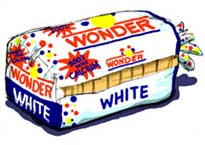
John 6:35-51
I was afraid I was going to sound a bit repetitive, not just because I assumed someone else would be doing the homily this week, and would be able to give a different perspective on this passage, but because the passage we read today from John 6 is simply a continuation of the sermon we were listening to as Jesus spoke in the synagogue last week. I thought – what else do we have to learn from this?
I see I was wrong. Even though it seems like he keeps saying the same thing over and over again.
He keeps saying a very strange and dangerous thing, “I am the bread of life,” . . . The crowd is skeptical already, looking for a plausable explanation as to why and how he can make these claims. We already saw that when he said these things last week; Jesus was in fact suggesting that faith is based not on a set of beliefs, concepts, propositions, but on a person itself. And more on this now, we come to “The Sermon, Part II: Up to and Over the Edge.”
Jesus doesn’t just make up these claims of divine Sonship. He draws on the richest and deepest memories of the Jews to connect himself to the expectations and assumptions they had already made. More like, he picks the scab of exile, separation, frustration and begins to clean out an old wound. He brings up their desert wandering: 40 years of grumbling, mumbling under their breath, and always looking sideways for the next big thing. Remember God in the wilderness -- your lack of faith and God’s relentless provision and the inevitable consequences of sin? These wanderers were literally fed every single day with bread from heaven, but they did not ever see the promised land.
Jesus draws a direct parallel between who he is and the God of manna and quail, the God of water from a rock, the very IAM of Moses’ burning bush. They should know him; they should recognize him as their own. Their beloved Scriptures point to him, and they have embraced His Laws.
Yet His I AM’s literally begin to “flesh-out” the veiled, terrible face of Yahweh. Ordinary earthy images that somehow transform into eternal reality.
I AM . . . the light of the world.
I AM . . . the gate for the sheep.
I AM . . . the good shepherd.
I AM . . . the resurrection and the life.
I AM . . . the true vine.
and of course,
I AM . . . the bread of life.
Do you notice their reaction? We might as well be back in Exodus – and John goes right along with this – for he says the crowd complained. That’s right – in political exile, still wandering -- their God comes to them face to face, and just like in the days of old, they murmur under their breath, grumble quietly to their closest neighbor.
But Jesus doesn’t just stop there. He’s taking them to the edge. Now it is time to push them over. “Very truly, I tell you, whoever believes has eternal life.” Again, “I am the bread of life.”
Now a quick aside regarding this word “believe.” We use this verse a lot, or at least something close to it, when we “present the gospel,” to a seeker. Our A,B,C’s are as easy as: Admit you’ve sinned, Believe in Jesus Christ, and Confess Him as your Savior. Simple. Easy. Viola!
But hopefully when we use this tool in bringing our neighbors to Christ, as when Christ himself said it here, we are not just speaking of a ubiquitous assent or indisputable claim. Belief is actually more than just saying you think it’s true or think it exists. I can believe in ghosts. They still may not exist. Cogito ergo sum – chucked out the window.
Perhaps belief and eternal life is not so much about “think it’s true and because you believe, you will last forever” (thank you, Chicago). Eternal life, sure, it’s a reward. But it’s not so much about that particular pattern of cause and effect – in other words, God saying, “I’ll scratch your terms of existence if you scratch mine,” -- as it is the inherent result of being in understanding, deep intimate knowledge of Jesus Christ himself. The Giver and Sustainer of Life.
The fact that we would experience eternal life is only possible because it is inextricably linked and rooted in who Jesus is.
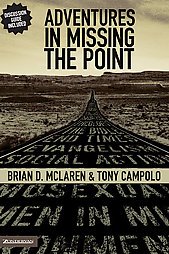
Now here is where I think we’ve messed it up.
What if we’ve got it all wrong? What if where we’re going, what we’ve always done and have always thought we were supposed to do is completely wrong. Off base. Out in left field. Wrong.
What if what we’re supposed to be doing and what we’re supposed to be about is what we’ve unwittingly been working against. For all our good intentions, we’ve missed the point . . . we’re wandering in the desert, expecting the promised land, looking and making up signs to point us to it, and in the end we may never reach it.
I wonder this aloud, and in relation to Jesus’ claims about our belief and living forever and being “bread,” because I’ve been reading a very interesting and probably dangerous book, Adventures in Missing the Point by Tony Campolo and Brian McClaren.
They talk about the Kingdom of God, which interestingly is what defined Jesus’ earthly ministry. Jesus’ preaching was not all fire and brimstone, though he warned of being cast out into the darkness. His teaching was not a neat outline articulating the “Ten Steps to Eternal Life,” though he spoke of his going to prepare a place. His real message was quite straightforward, “The Kingdom of God is at hand.”
It is HERE. And it’s about life NOW. We need not look anywhere else.
So salvation, McClaren and Campolo maintain, is not so much about being bailed out of any particular political exile, or for that matter, being deterred from morally repugnant behavior. But neither did salvation mean being tractor-beamed up into a celestial utopian bliss never to deal with the dirty, smelly, indiscreet world again. Instead, salvation was literally being rescued from the constant oppression of any and all of these corrupt circumstances to live the kind of life God created us to live.
Then McClaren actually suggests,
“If our theologies make us focus on the eternal and the individual (i.e. getting my soul into heaven) so that we avoid God’s concern for the historic and the global (i.e. God’s will being done on earth as well as in heaven), then the more people we win over to our theologies the fewer people will care about God’s world here and now.”
”The more converts we make, the worse the world will become.”
“If God really cares about justice in this world here and now, and if we are converting people away from the concern, then we are working against God. We could inadvertently become enemies of God’s wishes.”
Now I am not saying that we don’t have something to look forward to – we certainly await our reigning King to return in this already-not yet Kingdom. But when he returns, he’s not throwing this world away.
He’s proved this through His Incarnation – simply by becoming man, our God proved that flesh and spirit are no longer, or maybe never were, at war. He did not come for us to merely believe with our minds, and in gaining a special otherworldly knowledge about him, He himself could never be grasped, embraced . . . eaten.
For Jesus says, “Whoever eats of this bread will live forever; and the bread that I will give for the life of the world is my flesh.”
Salvation through Jesus Christ is real – spread through every substance, compound, molecule, and atom of Creation, for Christ’s personal sacrifice was neither a mental game nor a mystical battle. His sacrifice was a sacrifice of sarx – flesh – you know, the earthy, prone, vulnerable – that stuff we all have to deal with too. Jesus physically died upon a cross, while ribs cracked under his own weight, and blood poured from gaping wounds in his hands and feet, and water poured from his side.
This is our Bread.
This is our Daily Bread.
The Bread we ask for through gritted teeth. Or crossed fingers. Or faraway looks. Someday everything will be alright . . . when we all get to heaven.
But thank God, it’s not when all the bills are paid, or when the school year is finally over, or when Vacation Bible School is finished. Christ did not tell us to wait. He didn’t wrap us up in white robes and lock us in a little room to hold hands and drink some funky Kool-Aid – and for goodness sakes, get up here as fast as you can. He told us to go. Go into the world. Go and make disciples and baptize them into the Kingdom. He wanted us to Live.
Here, today, in celebrating the elements of Christ’s Body around the Table, and as Christ’s Body in the world, we usher in the Kingdom of God. As citizens of this Kingdom seeking to do his explicit will, we demonstrate belief in his Son for we also incarnate the very Spirit of Christ that is present and active in THIS world. This is more than a foretaste of the day when Christ does return to a new heaven and new earth.
So, what is our grumbling? For bread we believe we have never received.
We get to taste the Kingdom.
Live as though we believe. Believe that Jesus is Lord. He is Lord of Creation and Lord of our lives.
Let our ordinary lives reflect our eternal lives, the eternal life that we enjoy even today.
Monday, August 07, 2006
Paper Doll Funerals

Janice Hancock was just a little southern girl in Conway, Arkansas who loved to play with paper dolls. Everyday she would dress them up and take care of them. She would play with them and put them away when she was done. Those paper dolls were some of her favorite toys and good friends for a little girl.
Janice had a cousin who would come to play. His name was Hollis Williams. Hollis was a serious child with a fascination for ritual. Every day, Janice would pull out her paper dolls, dress them, and play with them. When Hollis would visit he would play with her and her paper dolls. Sometimes, her paper dolls would get sick and on the rare occasion those sick paper dolls just wouldn't pull through, Hollis would be ready with Bible in hand to perform the funeral. A small, private family service attended by only that little southern girl, a boy priest, and a few other paper dolls.
Janice is my mother. This was Conway, Arkansas in the 1940s. She told me that even as a little boy, Hollis loved ritual and liturgy. He grew up to become a priest in the Episcopal church. She doesn't know where he is now, but she just knew that's what he would end up doing.
Even now, I see the spiritual lives of children take on Kingdom of God qualities. I see kids who take the candy that they have and share it with other kids. Many times they count out the number of pieces so that eveyone has some. Sometimes, I see kids ask others if they are all right, you know, when they fall and have hurt themselves. I see a little boy who notices his friend pray a prayer of beginning, the start of a journey perhaps, or even his next step in the journey to wholeness and holiness.
Children have a heart for the spiritual. Not always, like adults, do they make the decisions that honor God and others. Those are the times they fail to mirror the Creator and instead mirror parents who they've seen talk abusively to each other or something they've seen on television. Notwithstanding, they are sensitive to the heart of God, moreso, certainly than adults.
I see in a boy who finds joy and comfort in meaningful ritual or a girl who takes part in the same, the heart and voice and mind of God. Take comfort in a paper doll funeral, for our hope is in the Resurrection. Take joy in the faith of a child, because the Kingdom of God belongs to them.
Saturday, July 29, 2006
Soulshine Is Better Than Sunshine . . .

Last night, or rather early this morning, Julia and I walked in the American Cancer Society's Relay for Life. Almost a year ago my brother in-law died because of cancer and yesterday Julia's father was diagnosed with cancer. We thought it would be good to participate in the walk. It was a good night and there were several people there that we knew from town and from the church. We walked with our good friend Steve Lehew whose nephew died a while back and whose niece, just a few weeks after her brother died, was diagnosed with cancer.
I bring this up because I was listening to one of my very favorite songs "Soulshine" by the Allman Brothers Band. This song was played at Don's, my brother in-law, memorial celebration. Everytime I hear this song I smile and sometimes I cry.
"Life can take the strongest man and make him feel so alone . . . I think back to what by daddy said, he said it's always darkest before the dawn. Gotta let your soul shine, it's better than sun shine, it's better than moonshine, and it's damn sure better than rain. Oh, the people don't mind. We all get this way sometimes. Gotta let your soul shine, shine to the break of day."
I've been thinking and writing about John 6, just after Jesus feeds the five thousand with a boys lunch. Evening had come and the disciples crossed the lake. They had trouble because the wind picked up and it was dark. They had rowed a few miles out and that's when they saw him and were terrified, scared out of their minds. It's always darkest just before the dawn. It was of course Jesus they saw, walking on the water, toward the boat. No wonder they were so frightened. Jesus said to them, "It is I; do not be afraid." Then something else amazing happened. The disciples wanted to get Jesus into the boat, but immediately the boat reached the land where they were headed.
We walked from 11:00 until almost 1:00 am. Certainly not the darkest time of the night, especially with the football stadium's lights at full blast. It was a good time for us. A real means of grace as we thought of Don and Julia's dad. God is a gracious God and he is a faithful deliverer.
Wednesday, July 26, 2006
And Now For Something Completely Different

I realized that our blogs had been a bit more serious than expected recently. With that in mind, today's topic is the Candy Bar. I am going to talk about some candy bars, rate and rank a few of my favorites and maybe others can comment with a top three favorite candy bar list.
Now, I have two friends who lived in Europe for a while with their families and they swear that chocolate from the United States is horrible compared to their European, particularly Swiss, counterparts. They say it is as though chocolate here in the U.S. is watered down compared to other world chocolates. However here, we are not going to discuss chocolate bars per se; we are going to discuss candy bars and chocolate only as it pertains to the specific mentioned bars. Well, let's get started!
First, I would like to mention my very favorite candy bars. This candy bar hails from Australia/New Zealand. The Violet Crumble, made by Nestle now, is a "honey comb" center covered in chocolate. This ambrosia candy bar is not to be confused with it's lesser Cadbury made rival the Crunchie. While both are similarly made and styled, the Violet Crumble has this sort of melt-in-your-mouth texture that tastes and feels fresher than the Crunchie (Cadbury 1939). Just to give an idea of my feelings for Violet Crumble, if I were in the woods and my left arm were caught in a bear trap and there were a Violet Crumble just out of reach, I would naw off my left arm in order to reach that miracle of a candy bar. You can purchase this candy bar at some specialty candy stores as well as Jason's Deli. There you have numero uno in the candy bar list.
Second place goes to another Nestle product. This bar has recently reemerged and because of the popularity of Charlie and the Chocolate Factory. It is Nestle owned Willy Wonka's Wonka Bar. The Wonka Bar is Wonka milk chocolate (reminds me a bit of Tobler chocolate because of the texture and chew quality) with crumbled up graham crackers. It is the perfect candy bar to eat while playing board games. I don't know why, but I enjoy them very much while playing Settlers of Catan. You can purchase this bar at some convenient stores, movie rental counters, and the occasional grocer.
The final candy bar on my list to round off the top three is a Cadbury product. Caramello has been one of my favorite bars since I was a kid. I can't tell you how many Caramellos and Mt. Dews I've had. All that sweet caramel and chocolate can't be bad for you! This is also a good board game candy bar, although I'd be kidding myself if I didn't say all three of these candy bars are good with a board game and a glass of milk (whole, of course).
There you have it, the best three candy bars in the history of candy: Violet Crumble, Wonka Bar, Caramello. What do you all have?
Monday, July 24, 2006
Dayton, Oh

It's official. Julia and I have accepted ministry positions at Parkview Church of the Nazarene in Dayton, Oh. We are very excited and yet sad. We are looking forward to working with Rev. Dave Ringhiser and being a part of his team. However, we know we are leaving behind a church and folks we love very much. We do feel God's direction in this decision. Please be praying for us and for our churches during this time of transition.
Tuesday, July 18, 2006
Clarity In the Arms of Christ
I spent some time with those wonderful Irish Jesuits at Sacred Space today. They reminded me that in all of this decision making, all of the prayer and conversation, all of all of it, I had not yet really taken the time to rest my whole self in Jesus' lap and just listen. It is about time to really listen, don't you think?
Monday, July 17, 2006
Where Is God in Decisions?
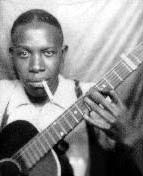 This question has been plaguing me for some time now. When I talk to great men and women of faith and hear of the clarity with which God speaks to them, guides them with what seems to be an iron clad control, I can't help but feel a bit jealous. It is different for those of us who espouse the openness of God. We believe that God knows all that is possible for him to know, which of course leaves out the future. As we have free will, the future cannot possibly exist without it being decided and thus exempting free will. What is left is the God who has determined what he will do in the future, leaving open the idea that he might change his mind or the possibility of folks standing in the way of that will. Thus, God in his choiced goodness, gives us direction that can be altered by our choice or others.
This question has been plaguing me for some time now. When I talk to great men and women of faith and hear of the clarity with which God speaks to them, guides them with what seems to be an iron clad control, I can't help but feel a bit jealous. It is different for those of us who espouse the openness of God. We believe that God knows all that is possible for him to know, which of course leaves out the future. As we have free will, the future cannot possibly exist without it being decided and thus exempting free will. What is left is the God who has determined what he will do in the future, leaving open the idea that he might change his mind or the possibility of folks standing in the way of that will. Thus, God in his choiced goodness, gives us direction that can be altered by our choice or others.That is where we stand today, trying to discern what God might have for us, knowing that he might have a choice between two or more valid options. How do we as Open Theists pray for God's will and at the same time feel honored by his redemption of bad situations and recognize his deliverance of us from situations gone bad? I have asked for clarity, peace, and always sought God's will. This has meant, for me, giving up things that I would have loved to do, such as the academy, for something that I have grown to love, pastoring. Now, I wouldn't trade pastoring for anything. However, we stand at a crossroads and I have no guitar and there is no devil there to whom I can trade my soul for guitar playing skills (nor would I want to, I just wanted to point out that I have mundane knowledge of Robert Johnson and his bluesy mythology).
What we really need is focus and clarity. We are praying that God's will be done. Please pray with and for us.
Sunday, June 25, 2006
The God Who Touches Us, The God Who Is Touched By Us
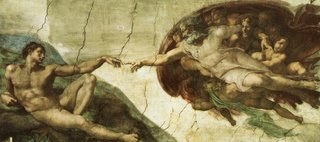 In thinking about next Sunday's (Proper 8) lectionary Gospel text (Mark 5:21-43, Episcopal reading) I see, or rather begin to see the real extent of the grace of God. In this scripture, Jarius comes to Jesus to ask if he will touch his deathly ill daughter and make her better. Jesus agrees and walks to his house. On the way, a woman who has suffered from hemorrhages for twelve years touches the hem of Jesus' cloak so that she may be healed. She is; Jesus feels it; Jesus confronts the woman. The woman falls before Jesus and explains everything and Jesus tells her that her faith has healed her. As Jesus continues to Jarius' house a messenger meets Jarius and tells him not to waist anymore of Jesus' time as Jarius' daughter has died. Jesus still insists on seeing her, tells the mourners that she is not dead just sleeping, whereupon they laugh at him. Jesus goes to the girl's room, touches her hand, and tells her to get up. She gets up, everyone is amazed, and Jesus tells them to keep their mouths shut.
In thinking about next Sunday's (Proper 8) lectionary Gospel text (Mark 5:21-43, Episcopal reading) I see, or rather begin to see the real extent of the grace of God. In this scripture, Jarius comes to Jesus to ask if he will touch his deathly ill daughter and make her better. Jesus agrees and walks to his house. On the way, a woman who has suffered from hemorrhages for twelve years touches the hem of Jesus' cloak so that she may be healed. She is; Jesus feels it; Jesus confronts the woman. The woman falls before Jesus and explains everything and Jesus tells her that her faith has healed her. As Jesus continues to Jarius' house a messenger meets Jarius and tells him not to waist anymore of Jesus' time as Jarius' daughter has died. Jesus still insists on seeing her, tells the mourners that she is not dead just sleeping, whereupon they laugh at him. Jesus goes to the girl's room, touches her hand, and tells her to get up. She gets up, everyone is amazed, and Jesus tells them to keep their mouths shut.There it is more or less. However, there is, to me, a great revelation of God that I have lingered on for years in this passage. It is the touch. There are two touches of significance here. There is the touch of the woman who has bled for twelve years, and there is the touch of Jesus that raises the dead girl. The touch is something that perhaps we glaze over as we read this story. We've heard it enough anyway and there are surely more important things to focus on, why would Jarius, a Jewish leader, seek Jesus out for help, or the faith of the woman versus the faithless mourners. However, I focus on the touch in this story. It is the thing that moves me.
Touch is a sense that makes sense to a sensory people whose lives need sense. Think of the paternal or maternal touch that can be so comforting for some, yet so abusive for others. Think of the excitement of the touch of the first hand you held. I think I was so excited that I had to pee. Think of the first kiss, a touch still, and the rush of adrenaline and hormones that can't possibly explain all there is to feel in a first kiss. I remember the first time I brushed skin with my wife (of course then she wasn't my wife) and every time I think about it I smile. Think about the first punch you threw, or took. Think of the last time a loved one died and a friend or pastor put their hand on your shoulder or hugged you. Think of what touch really means. It is one fifth of all that we sense and when it comes to sense the parts are just as great as the sum.
Now, think of God in the flesh. In Christ we see God/Man. Christ is both fully God and fully man. He was born a baby, wrapped in strips of cloth, and laid in a trough out of which cows eat. He grew up, died as man, was risen as man, and ascended to be at the right hand of God the Father almighty as man. But this was no Greco-Roman half god, half man, Hercules. Jesus is the real deal. He, while fully man, is also fully God, present at creation, fulfillment of the law, God with us.
This is my dilemma with the passage. God touches the little girl to raise her from the dead. He touches her and she is moved. God became man and touched people. People were changed because of it. It happens all through the Gospels. Jesus heals the sick, touches children, lepers, mother in-laws. It's amazing. God touches people and they respond by being moved, healed, transformed. This is heresy. Certainly God would not debase himself by touching people. Yet he does. And people respond, all glory and honor be to God, they respond. God touches us.
If it ended there, all heaven would rejoice and all Earth would seek to be touched by God, but it does not end there. The bottom falls out. Logic is shattered. Economies spill like milk from a screaming child's glass. The world is turned on its ear as God allows the unthinkable. This story is not merely about God touching people. It is also about people touching God. This is the part of the story that could offend those who stand so firm in their belief of an ineffable, immutable, self-sufficient, invulnerable, changeless (oh, did I already say that) God. If you believe in such a deity, please do not continue reading. On second thought, go ahead, your comments will be fun to read.
The crowd pushed in on Jesus. They were uncomfortably close and someone wreaked of body odor. Who is that? The static electricity of excitement about Jesus and what he would do about Jarius' daughter built like leather soles and a wool sweater on thick pile carpet. Something was going to pop at any moment. This was her chance. She'd been bleeding for twelve years and had heard what Jesus could do, but people were too close for her to get to him. She thought that if she could just touch, even the hem of his cloak, the bleeding would stop. She leaned over at just the right time when two people had stepped ahead. She reached out and touched. All hell broke loose. Jesus just stopped. The crowd couldn't stop in time and fumbled getting control of itself. Three people fell and were embarrassed. Jesus knew he'd been touched. He'd felt his power move out in blessing. He was affected. He was moved and the woman was healed. She told him what had happened and he told her that her faith had healed her. But it was too late. History was changed forever and God had been touched by people. The unmoved mover was suddenly moved.
God was touched by a person and not just any person . . . A woman and not just any woman . . . An unclean woman. Suddenly, the ineffable God doesn't seem so far away. The unaffected, self-sufficient God isn't so ivory tower any more. It seems when God became man, he really did get off his high horse. This is why this passage affects me so much. God not only touches us and we are changed forever, but God is touched by us and he is changed forever. In YHWY the Transcendent and Imminent are One. We are invited by God to be touched by God and to touch God. What an invitation. I accept. . . With everything that I am, with everything that God will make me.
Subscribe to:
Comments (Atom)


